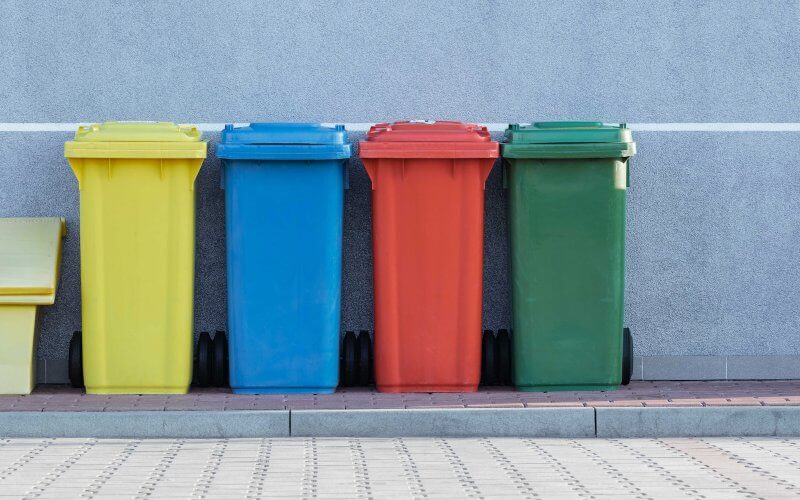Proper medication disposal is essential to protect the environment, prevent misuse, and ensure the safety of others. Simply throwing unused or expired medications in the trash or flushing them down the toilet can have serious consequences. In this article, we will discuss the importance of safe medication disposal and provide guidelines on how to dispose of medications properly. By following these recommendations, you can contribute to a safer and healthier community.
Why Safe Medication Disposal Matters
Improper disposal of medications can have various negative impacts:
- Environmental Concerns: When medications are flushed down the toilet or discarded in the trash, they can end up in water sources and soil, potentially contaminating the environment. This can harm aquatic life and impact ecosystems.
- Drug Abuse and Misuse: Medications that are not disposed of properly can be easily accessed by individuals seeking to abuse or misuse them. This can contribute to the opioid crisis and other substance abuse issues.
- Accidental Ingestion: Discarded medications, especially those that resemble candy or attractive to children, pose a risk of accidental ingestion. This can lead to poisoning or other adverse effects.
To mitigate these risks, it’s important to adopt safe medication disposal practices.
General Guidelines for Safe Medication Disposal
Follow these general guidelines to ensure safe medication disposal:
- Read the Label: Check the medication label or package insert for any specific disposal instructions provided by the manufacturer. Some medications may have specific recommendations due to their potential hazards.
- Don’t Share Medications: Never share prescription medications with others. Medications are prescribed based on individual needs and health conditions. Sharing medications can lead to serious health consequences or adverse drug interactions.
- Avoid Flushing Medications: Unless specifically instructed to do so, avoid flushing medications down the toilet or sink. Flushing can contribute to water contamination.
- Remove Personal Information: Before disposing of medication packaging, ensure to remove or black out any personal information to protect your privacy.
- Don’t Crush or Break: Avoid crushing or breaking solid medications before disposal, unless advised by the manufacturer or healthcare provider. This helps prevent accidental exposure or inhalation of the medication.
Now, let’s discuss specific disposal methods for different types of medications:
1. Prescription Medications
For prescription medications, consider the following disposal options:
- Drug Take-Back Programs: Check if your local pharmacy, healthcare facility, or law enforcement agency hosts drug take-back programs. These programs provide a safe and convenient way to dispose of medications. They ensure proper disposal by incineration or other approved methods. Visit the DEA’s website to find a take-back location near you.
- Mail-Back Programs: Some medication manufacturers or pharmacies offer mail-back programs, allowing you to safely return unused medications through the mail. They provide special envelopes or containers for secure transportation and disposal.
- Household Trash: If no take-back programs are available, you can dispose of most prescription medications in your household trash. To do so safely, follow these steps:
- Mix the medication with an undesirable substance, such as coffee grounds or kitty litter.
- Seal the mixture in a plastic bag or container to prevent leakage.
- Conceal or remove any personal information from the original packaging before discarding it.
Ensure to check with local regulations and guidelines regarding medication disposal, as some areas may have specific instructions or restrictions.
2. Over-the-Counter (OTC) Medications
Safe disposal methods for OTC medications include:
- Drug Take-Back Programs: Check if local drug take-back programs accept OTC medications along with prescription medications.
- Household Trash: Most OTC medications can be disposed of in the household trash. Follow these steps:
- Mix the medication with an undesirable substance like coffee grounds or kitty litter.
- Seal the mixture in a plastic bag or container.
- Conceal or remove any personal information from the original packaging before discarding it.
3. Controlled Substances
Controlled substances, such as opioids or certain anxiety medications, require special attention due to their potential for abuse. Consider the following disposal options:
- Drug Take-Back Programs: Take advantage of drug take-back programs offered by local pharmacies, healthcare facilities, or law enforcement agencies.
- Flushing: Some medications, particularly opioids, may have specific disposal instructions that recommend flushing. This is to prevent the medications from being diverted and misused. Always follow the specific instructions provided by the medication’s manufacturer or healthcare provider.
4. Liquid Medications
Liquid medications, such as cough syrups or oral suspensions, require special considerations for disposal:
- Do Not Pour Down the Drain: Avoid pouring liquid medications down the sink or toilet, as they can contaminate water sources.
- Mix with Inedible Substance: Mix the liquid medication with an undesirable substance, such as cat litter or dirt, to discourage ingestion.
- Seal and Discard: Seal the mixture in a container with a tight-fitting lid before disposing of it in the household trash.
5. Sharps or Needles
Disposal of sharps or needles should follow specific guidelines to prevent injuries and contamination:
- Use Sharps Containers: Place used sharps or needles in puncture-resistant containers specifically designed for sharps disposal. Many pharmacies and healthcare facilities offer sharps containers or accept them for disposal.
- Mail-Back Programs: Some local or national programs provide mail-back options for safe sharps disposal. Follow the instructions provided to return the containers by mail.
- Drop-off Locations: Check with local pharmacies or healthcare facilities for designated drop-off locations that accept sharps containers.
Remember, safe medication disposal helps protect the environment, prevents misuse, and ensures the well-being of others. By following these guidelines and utilizing available disposal programs, you can contribute to a safer and healthier community.
At RxGo, we are committed to promoting medication safety and providing affordable access to medications. Don’t forget to check out our prescription discount card to save on your medication costs. Together, let’s prioritize safe medication disposal for a healthier future.
Note: The information provided in this article is for educational purposes only and should not be substituted for professional medical advice. Always consult with your healthcare provider for personalized guidance and treatment options.

